
17 November 2025
From Passion to Action: Yuni Asriyanti's Fight for Women and Gender Equity
For Australia Awards alumna Yuni Asriyanti, the pursuit of gender equality and the eradication of vi... Read more
The Australia Awards are prestigious, transformational scholarships and short courses offered to emerging leaders for study, research and professional development in Australia
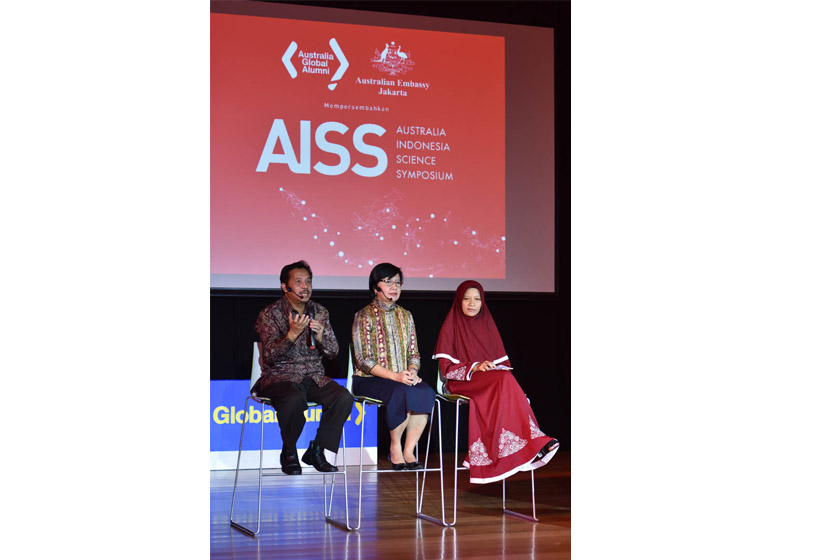
29 November 2016
 Alumni weigh in on challenges and opportunities in Science and Technology
Alumni weigh in on challenges and opportunities in Science and Technology
Scientific partnerships and emerging two-way opportunities were the focus of a TED-style event at the Australian Embassy last week, which was held in recognition of the inaugural Australia-Indonesia Science Symposium (AISS) taking place in Canberra this week.
Indonesia’s First Shrimp Pathologist Dr Sidrotunm Naim, health scientist Professor Adi Utarini and food security specialist Dr. Arief Daryanto – Australian alumni –all gave presentations at the event, on scientific issues of mutual interest to both countries, such as marine science and food security. The send-off was held on 22 November at a packed Australian Embassy theatre; guests comprised of Australian alumni, AISS participants, policy makers and academics.
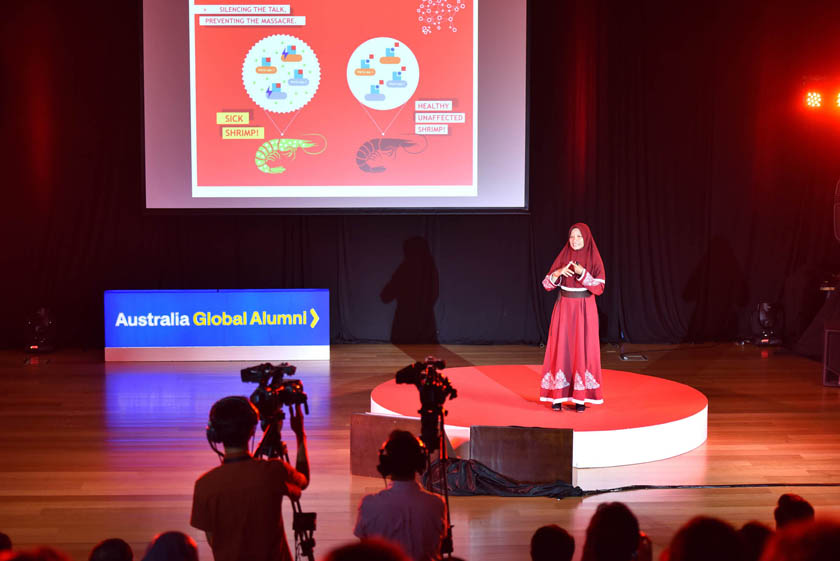
Prof Sidrotun Naim gave an account of how she came to study shrimp pathology and the lessons she learned, not only on shrimp pathology, but also on something more fundamental. She exclaimed, ”Science for the sake of science does not always go together with science for the sake of the people.” She encouraged her fellow scientists to keep in mind on how their research could benefit the community.
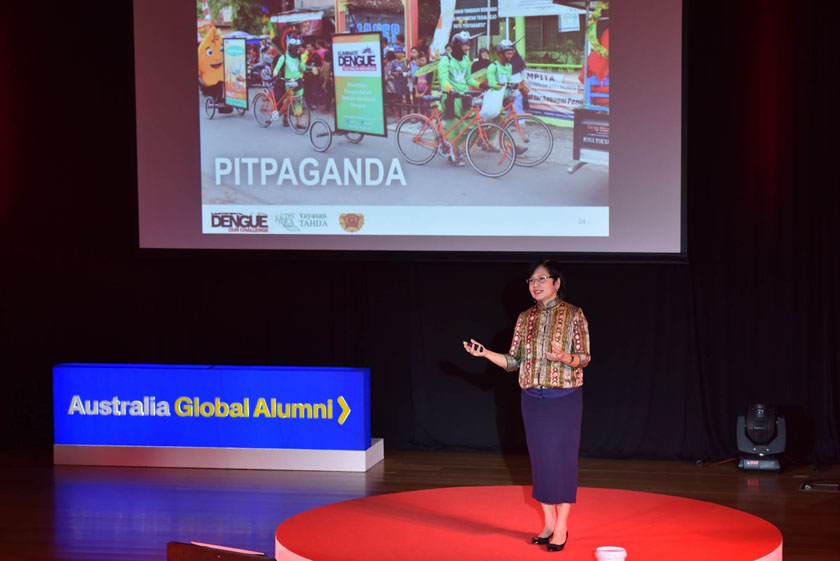
Meanwhile, Prof Adi Utarini held the audience captive as she shared her experiences as project leader for the Eliminate Dengue Project Yogyakarta hosted by Monash University. The project employs a breakthrough approach of utilising the Wolbachia bacteria to curtail the population of Aedes aegypti mosquito, the carrier of dengue. Prof Utarini touched on how socialisation was key to ensuring the community’s understanding and acceptance in this new experiment.
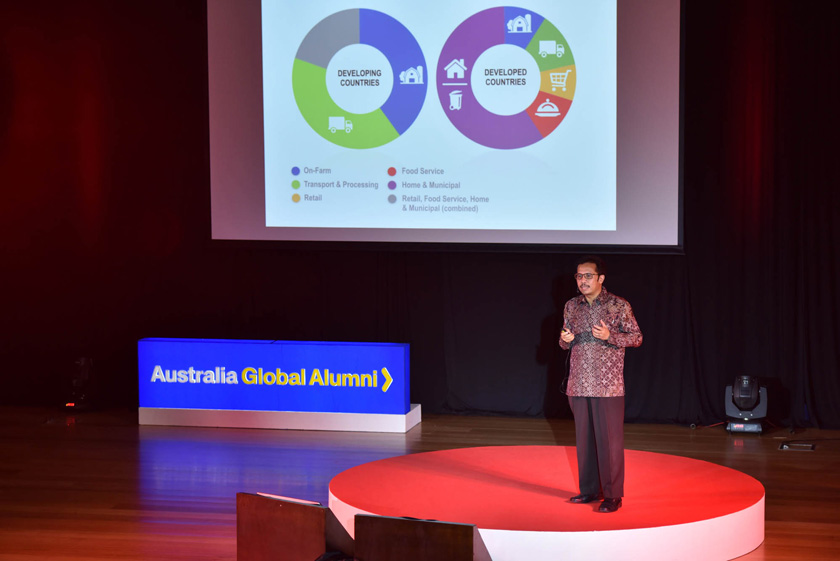
Dr Arief Daryanto wrapped up by explaining how food waste and food loss play key roles in sustainable food security—food waste being food wasted at the consumer level and food loss as food lost during the production process. To reduce food waste, he inspired the guests to ”plan on what you want to buy, and don’t buy what you didn’t plan”
All talks emphasised the importance of community engagement for impactful scientific interventions. Stay tuned – these TED-style talks will shortly be available online.
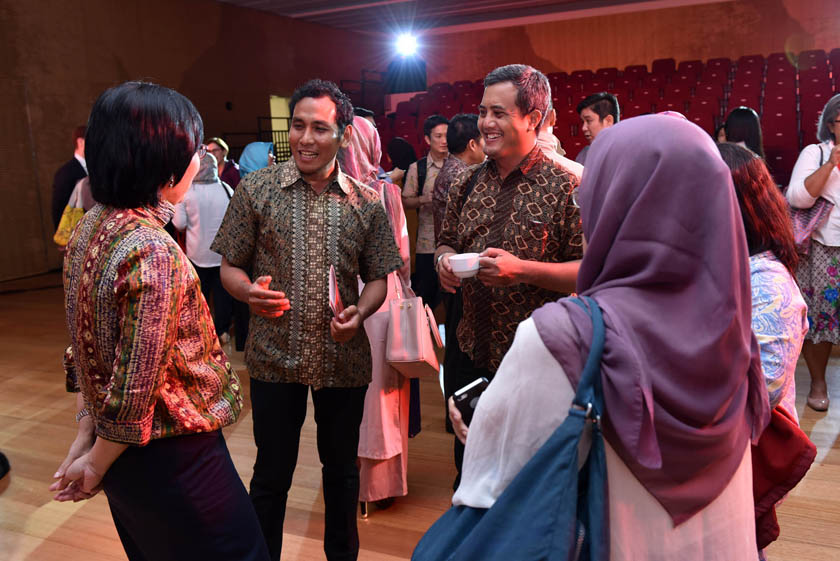
The Q&A session after the talks was lively, with audience members asking clarifying questions and exchanging ideas from cross-disciplinary perspectives. The guests were so inspired that they continued to engage with the speakers long after the Q&A session was officialy over. As one guest remarked, "This was one of the best scientific presentations I've had the privilege in attending in the past 4-5 years."
The audience also had the opportunity to hear from Dr Lee, Australian Deputy Ambassador to Indonesia, Prof Brodjonegoro, Vice President of the Indonesian Academy of Sciences, Prof Jompa, President of the Indonesian Young Academy of Sciences, and Dr. Dimyati, Director General, Ristek-Dikti.
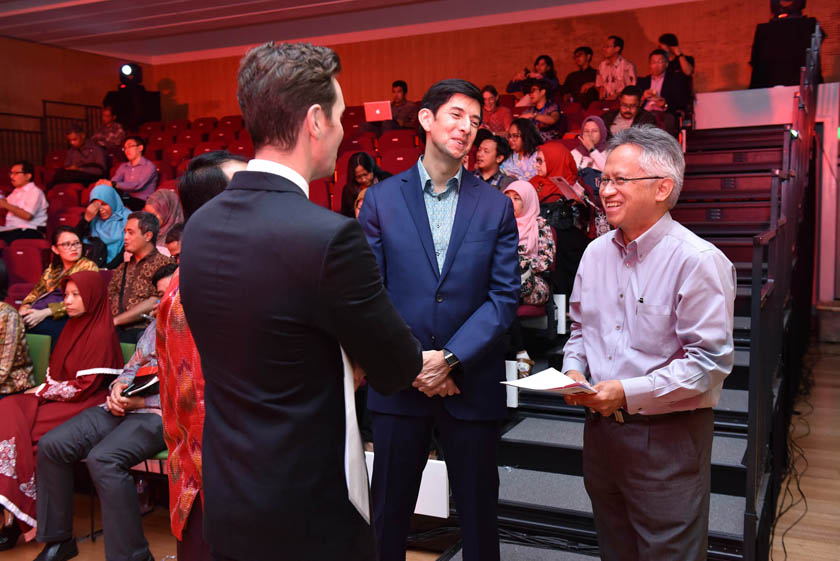
The AISS is a joint initiative of the Australian Academy of Science and the Indonesian Academy of Sciences and is supported by the Australian Government’s Knowledge Sector Initiative. The Symposium will be the catalyst for further scientific collaborations and research opportunities on issues of shared concern between Australia and Indonesia. For more information on the AISS: http://www.ksi-indonesia.org/aiss/home.
Share this news on:
 Related News
Related NewsThis website uses cookies to improve your website experience. We may also use cookies to analyse website data so that we can improve our online services. To find out more visit our privacy policy.
